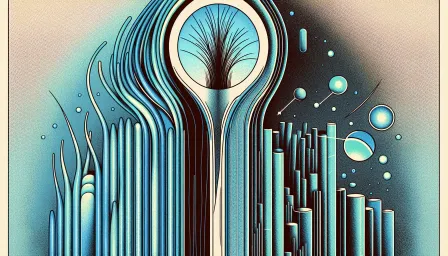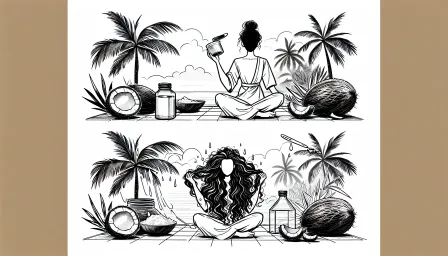Understanding Hair Loss in Teenagers: Causes and Solutions

Discover the causes of hair loss in teenagers and explore effective solutions to address this common concern. Learn how to take control of hair health with our comprehensive guide.
Introduction
Hair loss in teenagers can be a distressing experience, affecting not only physical appearance but also self-esteem and psychological well-being. While it is commonly associated with adults, hair loss can occur at any age, including during the teenage years. This article seeks to provide a comprehensive understanding of the various reasons behind hair loss in teenagers and suggest practical solutions to mitigate this issue.
Causes of Hair Loss in Teenagers
Hair loss in teenagers can be attributed to a myriad of factors. Understanding these causes is crucial in identifying the most effective treatment options.
Genetic Factors
One of the primary reasons for hair loss in teenagers is genetics. Androgenetic alopecia, commonly known as male or female pattern baldness, can present itself during the teenage years if there is a family history of the condition.
Hormonal Changes
The teenage years are characterized by significant hormonal fluctuations. Conditions such as polycystic ovary syndrome (PCOS) in girls or imbalances associated with puberty can lead to hair thinning and loss.
Nutritional Deficiencies
A balanced diet is essential for healthy hair growth. Deficiencies in key nutrients like vitamins A, C, D, E, zinc, iron, and protein can contribute to hair weakening and loss. Teenagers often have dietary habits that could lack these essential nutrients, causing hair issues.
Stress and Psychological Factors
Stress and emotional disturbances can have a profound impact on hair health. Conditions such as telogen effluvium, where stress pushes hair follicles into a resting phase, or trichotillomania, a hair-pulling disorder, are manifestations of psychological stress affecting hair.
Medical Conditions
Certain medical conditions, like thyroid disorders, autoimmune diseases like alopecia areata, and scalp infections such as ringworm, can result in hair loss. Addressing the underlying medical issue usually helps in mitigating hair loss.
Medications and Treatments
Teenagers undergoing treatments for various health conditions might experience hair loss as a side effect of certain medications, such as those used for acne, depression, or chemotherapy.
Hair Styling Practices
Frequent use of heat styling tools, chemical treatments such as perms and relaxers, and tight hairstyles like braids and ponytails can damage hair follicles and lead to traction alopecia. Educating teenagers on safe hair care practices is crucial.
Solutions to Hair Loss in Teenagers
While hair loss in teenagers can be challenging, there are several effective strategies and treatments available to manage and reduce it.
Healthy Diet and Supplements
Encouraging a well-balanced diet rich in essential vitamins and minerals fosters healthy hair growth. In cases of severe deficiencies, appropriate supplements can be beneficial, but these should be taken under medical supervision.
Stress Management
Implementing stress-reducing activities such as sports, hobbies, meditation, and counseling can help alleviate hair loss induced by psychological factors. Supporting teenagers through stressful situations is crucial.
Medical Treatment
If hair loss is attributed to medical conditions, treating these underlying issues is vital. Consulting healthcare professionals for appropriate diagnosis and treatment plans is recommended.
Proper Hair Care Practices
Encouraging gentle hair care routines, avoiding excessive use of heat and chemicals, and adopting protective hairstyles can significantly reduce hair damage and loss. Education on proper hair care is an essential preventive measure.
Use of Medications and Topical Treatments
Over-the-counter treatments like minoxidil can stimulate hair growth and are commonly recommended. Consulting a dermatologist can also open up options for prescription medications and professional treatments.
Therapeutic Interventions
For conditions like trichotillomania or severe cases related to stress, behavioral therapy and cognitive therapy can be extremely effective. Therapy can help address the psychological roots of hair-pulling or stress-induced hair loss.
Conclusion
Hair loss in teenagers is a multifaceted issue with various underlying causes. Identifying the specific reason behind hair thinning or loss is critical in determining the most effective treatment plan. By maintaining a healthy lifestyle, managing stress, adhering to proper hair care routines, and seeking professional medical advice when necessary, teenagers can successfully navigate and mitigate the challenges of hair loss. Empowering teenagers with this knowledge ensures they can preserve their hair health and maintain their confidence.



























